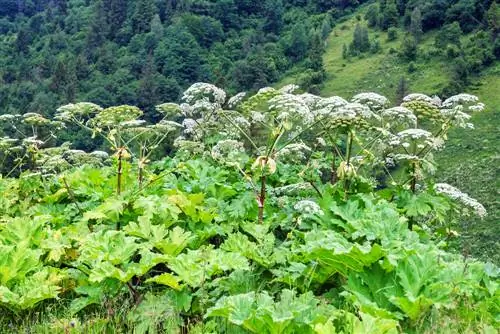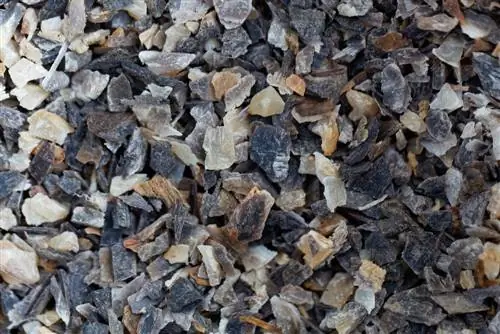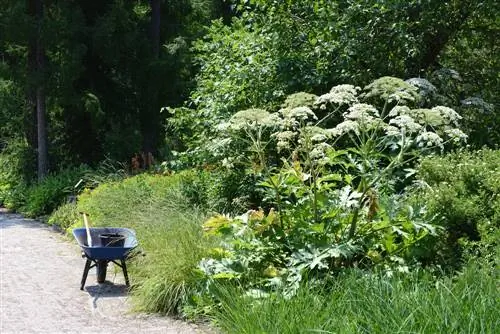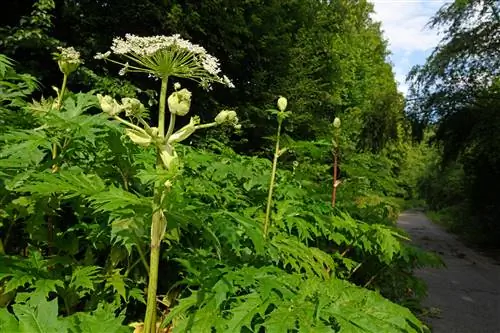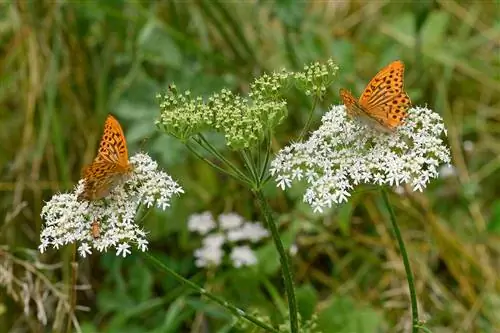- Author admin leonars@hobbygardeners.com.
- Public 2023-12-16 16:46.
- Last modified 2025-06-01 06:02.
Numerous warnings have made home gardeners aware of the danger that giant hogweed can pose. If the majestic umbelliferous plant appears in the garden seemingly overnight, the question arises as to whether the poisonous plant needs to be reported. You can find out how to act correctly when you encounter the Hercules perennial here.
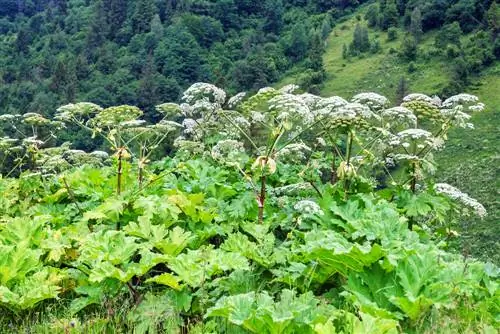
Do you have to report giant hogweed?
In Germany, giant hogweed plants are not subject to reporting; however, if it occurs in your own garden, quick action is recommended. If it occurs in the wild, it makes sense to inform the environmental or nature conservation authorities in order to prevent the poisonous Hercules perennial from spreading further and to avoid accidents.
Hogweed in the garden - fight promptly instead of reporting it
In Germany there are no plants that are subject to reporting. Therefore, occurrences of giant hogweed or other poisonous plants are not subject to official reporting requirements. If the Hercules perennial grows cheekily in your garden, it is your personal decision as to what you do with the plant. In view of the poisonous plant sap and the associated he alth risks, we recommend that you combat it as soon as possible. How to act correctly:
- Best date: an overcast day in March or April
- Put on protective overalls including face and head protection as well as gloves and boots
- Cut off above-ground plant stems
- Dig up roots to a depth of at least 20 cm
- Burn all plant residues or put them in the trash can
- Carry out a follow-up check after 3 weeks
As the strong Hercules perennial sprouts again from the smallest root remnants, the soil is separated from the light supply for a few months. For this purpose, spread weed or pond liner, which is covered with gravel, soil or bark mulch.
Please report occurrences in fields and forests
Reports of painful accidents involving children with giant hogweed are increasing. The impressive plant with its beautiful flowers and red-flecked, hollow stems magically attracts little explorers. Inexperienced adult hikers are also increasingly becoming victims of the aggressive wild perennial. We therefore ask you to report any occurrence of Hercules perennials in the wild to the environmental or nature conservation authorities. Although the plant is not subject to registration, this prudent, responsible act will prevent the floral invader from spreading further and prevent further accidents.
Tip
Please don't let the warnings about hogweed tempt you to destroy every umbelliferous plant immediately. A variety of harmless plants look deceptively similar to the Hercules perennial. These include edible wild perennials such as cow parsley (Anthriscus sylvestris) or sweet umbel (Myrrhis odorata) as well as traditional medicinal plants such as wild angelica (Angelica sylvestris).

